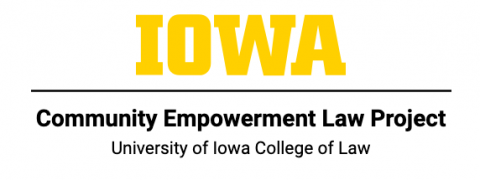Maquoketa River WMA Governance and Organizational Effectiveness
Clinic law students, who are second or third-year students at the University of Iowa College of Law participating in the Community Empowerment Law Project (CELP), worked with Maquoketa River WMA officials to improve organizational effectiveness and develop strategies to help achieve short and long terms organizational goals.
In spring 2022, as part of the IISC partnership, the Maquoketa River WMA retained the University of Iowa's Community Engagement Law Project (CELP). Based on initial research and conversations with MR WMA staff, the team of student attorneys identified three broad issues that could support the MR WMA’s operational efficacy:
- Funding: Adequate revenue to support a Watershed Coordinator, other staff, and the MR WMA’s Watershed improvement projects.
- Governance: Well-attended and effective Board meetings to conduct MRWMA business and evaluating policies to ensure compliance with various provisions of Iowa law, the MRWMA 28E Agreement, and its own bylaws.
- Strategic Planning: Greater clarity about the organization's identity and purpose within the Maquoketa River Watershed, and well-defined strategies to better develop this identify and purpose.
Following conversations with the MR WMA, the CELP team tailored their representation to pursue the MR WMA’s goals in view of its immediate and long-term needs, while also developing methods to strengthen its performance in each of these categories. Cognizant that the MR WMA is still in its formative years, the team's strategy evolved to focus on opportunities to strengthen the Board and provide the MR WMA with a strategic planning model for pursuing organizational effectiveness. Accordingly, they developed 1) a comprehensive Board of Directors Manual to guide the MR WMA’s governance, strengthen member collaboration, and promote efficiency 2) a Governance Guidebook and 3) an accessible Strategic Planning Model that the MRWMA can deploy once it has a firm Board foundation in place.
